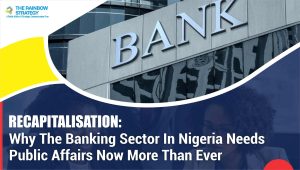President Bola Ahmed Tinubu marks two years in office on May 29, 2025, a moment to reflect on the bold economic reforms launched in 2023 and to assess where Nigeria stands today.
Two years after implementing key economic reforms in 2023, Nigeria finds itself at a critical juncture. These reforms, designed to stabilise the economy and set the nation on a path toward sustainable growth, have yielded mixed results. While macroeconomic indicators show modest improvements, the lived experiences of ordinary Nigerians and the business community reveal a more complex and often painful reality. In this article, we will explore how companies are navigating the shocks of these reforms, their impact on everyday citizens, and what President Bola Ahmed Tinubu must do to mitigate the negative effects of his policies.
The Reforms: A Necessary but Painful Path
When President Tinubu took office in May 2023, Nigeria was grappling with a fragile economy, high inflation, dwindling foreign reserves, and a looming fiscal crisis. To address these challenges, his administration swiftly implemented a series of bold reforms:
- Elimination of the Fuel Subsidy: This long-standing policy had kept petrol prices artificially low but was a significant drain on public finances, costing the government billions of dollars annually.
- Unification of the Exchange Rate: By allowing the naira to float and find its market value, the government aimed to eliminate the black-market premium and reduce corruption in foreign exchange markets.
- Tight Monetary Policy: The Central Bank of Nigeria (CBN) raised interest rates to combat inflation and refocused on its price stability mandate.
These measures were praised by international institutions like the World Bank and the IMF as essential for restoring macroeconomic stability. Early indicators suggest some progress: Nigeria’s GDP grew modestly, the fiscal deficit narrowed, and foreign exchange reserves increased to over $24 billion by 2024. However, these gains have come at a significant cost for businesses and ordinary Nigerians.
Companies Navigating Shocks: A Tale of Resilience and Struggle
For Nigerian businesses, the reforms have been a double-edged sword. While they promise a more transparent and market-driven economy in the long term, the short-term shocks have been intense:
- Inflationary Pressures: The removal of fuel subsidies caused petrol prices to surge, driving up transportation and production costs. Headline inflation peaked at 31.7% in 2024, squeezing profit margins and forcing companies to raise prices.
- Foreign Exchange Volatility: The naira’s float led to an initial sharp depreciation, increasing the cost of imported raw materials. Businesses dependent on imports have struggled to access foreign currency, disrupting operations.
- Tight Credit Conditions: With the CBN raising interest rates to curb inflation, borrowing has become more expensive. Small and medium-sized enterprises (SMEs), the backbone of Nigeria’s economy, have been hit hardest, with many unable to secure affordable financing.
Despite these challenges, some sectors have shown resilience. The oil and gas industry has benefited from stabilised output and higher global prices, while fintech and telecommunications continue to thrive, driven by Nigeria’s young, tech-savvy population. However, for most businesses, particularly in manufacturing and agriculture, the path to recovery remains steep.
The Human Cost: Ordinary Nigerians Bear the Brunt
While companies grapple with operational challenges, ordinary Nigerians are facing an unprecedented cost-of-living crisis. The reforms have fuelled inflation, hitting essential goods and services the hardest:
- Skyrocketing Food Prices: Food inflation reached 33.9% in December 2023 and stayed high into 2025. A 50kg bag of rice, which cost N30,000 in 2023, soared to N90,000 by April 2025, forcing families to cut back on meals or rely on less nutritious options.
- Transportation Costs: Petrol prices tripled from N190 to N950 per litre, pushing public transportation fares out of reach for many workers and eating into household budgets.
- Energy and Utility Bills: Electricity tariffs have risen sharply, especially for Band A customers, whose rates tripled. This has compounded the financial strain on households already battling high food and fuel costs.
The impact on poverty has been severe. The World Bank estimates Nigeria’s poverty rate climbed to 46% in 2023, with 104 million people living below the poverty line, making it the second-largest poor population globally after India. For most Nigerians, the macroeconomic gains feel distant and irrelevant.
The President’s Challenge: Alleviating the Pain Without Derailing Progress
President Tinubu’s reforms were critical to avert a fiscal collapse, but their rollout has lacked sufficient social safety nets. To address the negative impacts, the president must act decisively with targeted measures:
- Scale Up Social Protection Programs: Expand cash transfers and food aid to the poorest households to offset inflation and subsidy removal effects. International partners like the World Bank and African Development Bank stand ready to support such efforts.
- Invest in Job Creation and Youth Employment: With unemployment soaring, especially among the youth, prioritise policies that boost productive jobs. Support SMEs with affordable credit, improve infrastructure, and promote high-employment sectors like agriculture and manufacturing.
- Address Structural Inflation Drivers: Beyond monetary tightening, tackle supply-side issues like insecurity, poor infrastructure, and low agricultural productivity. Enhance security in farming regions, invest in irrigation, and improve transportation networks.
- Enhance Transparency and Governance: Corruption continues to hinder equitable growth. A renewed anti-graft campaign, especially in public procurement and subsidy management, is essential to ensure reform benefits reach the masses.
A Delicate Balance: Staying the Course While Easing the Pain
Nigeria’s economic reforms have laid the groundwork for long-term growth, but the immediate toll has been heavy. Companies must adapt with agility and innovation, while ordinary Nigerians rely on resilience and community support. Government intervention, however, is vital to prevent widespread hardship.
President Tinubu faces a high-stakes balancing act: maintaining reform momentum while ensuring inclusive prosperity. If he can deliver policies that curb inflation, create jobs, and protect the vulnerable, Nigeria could emerge stronger. Failure to do so risks plunging the country back into economic stagnation and unrest.
The next two years are pivotal. The Rainbow Strate urges the president to act swiftly and boldly—Nigeria’s future hangs in the balance.




